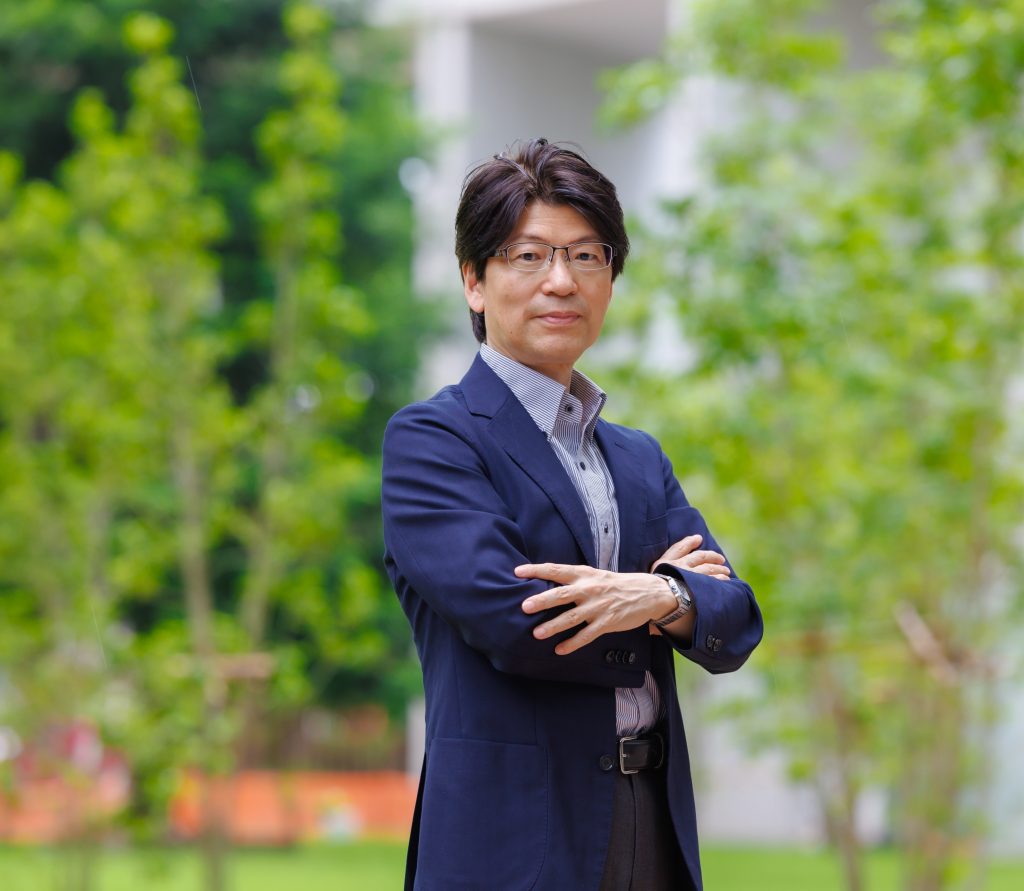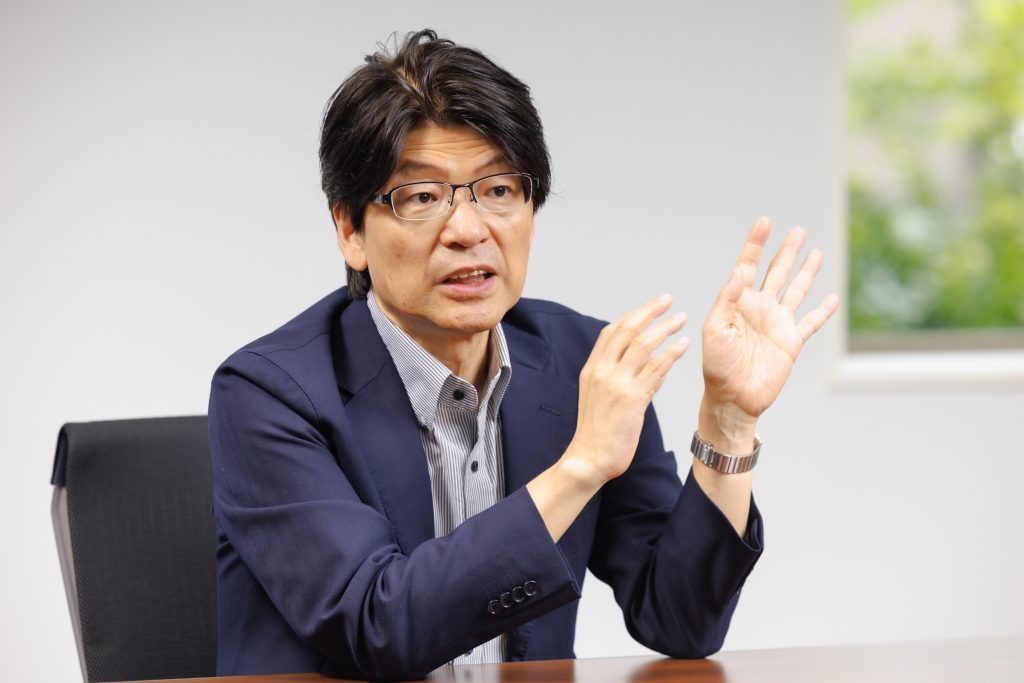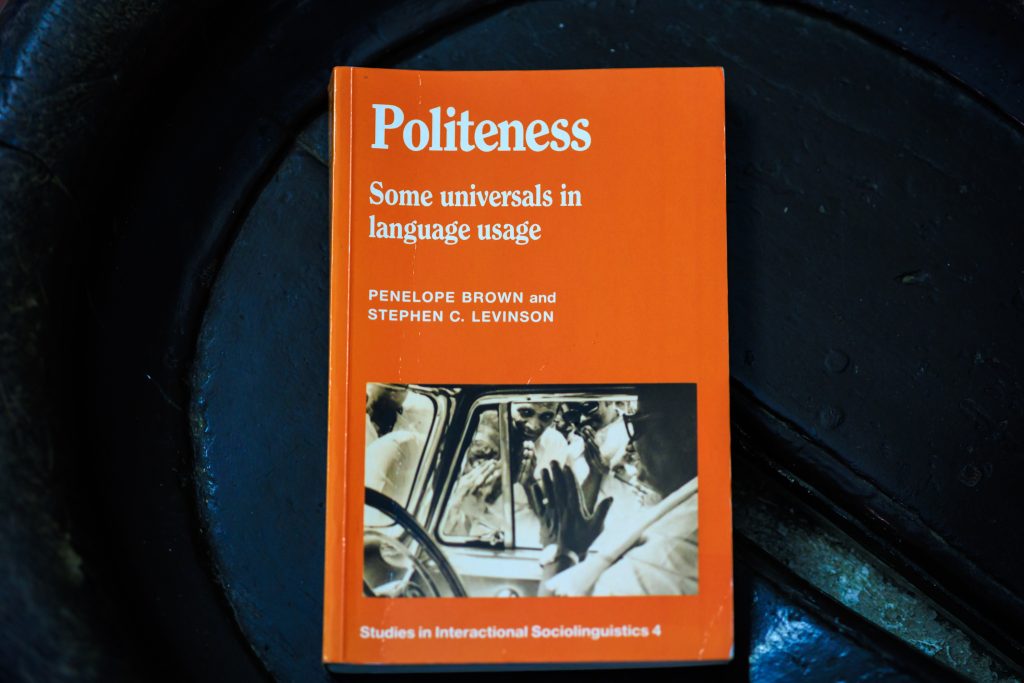
Professor Takafumi Shimizu from the Center for Language Education and Research says that applied linguistics is an academic field for making people happy. He talks about the knowledge needed to acquire communicative competence in foreign languages and the importance of learning how to use language.
I conduct research on the acquisition of communicative competence and ways to support such learning, looking at learners of Japanese and English. What are the abilities needed for foreigners living in Japan and Japanese people living in English-speaking countries to lead fulfilling social lives and perform at school and at work? What kind of learning and support is needed to acquire these abilities? Thinking about these issues has been my consistent research theme.
There are two sides to communication: the conveyance of intention, and consideration for the other party. For example, in a conversation between A and B, A saying “Lend me 10,000 yen” and B saying “No” achieves a full score of 100 in terms of conveying the intentions of a request and a rejection, but fails when it comes to consideration for the other party.
This is because, as a result of this communication, both sides feel unpleasant and the relationship between them deteriorates. When you think of it this way, you come to understand that the communicative competence that we should acquire is the ability to achieve a good balance between conveyance of intention and consideration for the other party.
Knowledge of language use that is indispensable for learning foreign languages

What, then, are the kinds of knowledge necessary for achieving a good balance between conveyance of intention and consideration for the other party? They are knowledge regarding language structure—such as vocabulary, grammar, and pronunciation—and knowledge regarding the use of language, which is used for expressions that fit the context of the conversation and the relationship between the two parties.
Only when you acquire both kinds of knowledge can you successfully communicate using language. However, the teaching of Japanese and English has so far emphasized solely the learning of structure, and it is hard to say that we have adequate curriculum and educational materials for learning language use.
Not knowing how to use a foreign language means that, even if we can apply difficult vocabulary and grammar correctly, we will not be able to appropriately convey what we want to say. For example, when rejecting an invitation, Japanese people tend to use vague terms such as “I am busy” and “I have something else on.”
Using the same way to reject Americans in English may leave the impression that one is insincere for not giving a proper reason. Americans usually state specific reasons when rejecting an invitation, such as “I am supposed to catch a Yankees game with my family on that day.” As language use is influenced by factors such as the respective country’s culture and history, we cannot simply apply our mother tongues to a foreign language.
Improve communicative competence and build good interpersonal relationships
I think many people learn foreign languages to interact with people who speak those languages and build good interpersonal relationships with them. It is truly a pity if learners who work hard to study words, grammar, and pronunciation are unable to achieve their goals due to a lack of knowledge regarding language use.
I hope to help foreign language learners learn how to use language by developing educational materials and curriculum incorporating my research results and the insights obtained from research in Japan and overseas. This desire is my motivation.
I believe applied linguistics is an academic field for making human beings—who communicate using language—happy. There are many ways to make people happy, and as I am a linguistics scholar, I hope to help create an even happier society by improving people’s communicative competence to maintain good interpersonal relationships.
The book I recommend
“Politeness: Some Universals in Language Usage”
by Penelope Brown and Stephen C. Levinson, Cambridge University Press

“Politeness” is not simply about being polite and having good manners. It is also about the linguistic mechanisms applied to show consideration for others. This book, which discusses language communication for building and maintaining good interpersonal relationships, remains relevant today even though it was published about 40 years ago.
-
Takafumi Shimizu
- Professor
Center for Language Education and Research
Graduate School of Languages and Linguistics
- Professor
-
Graduated from the School of Law, Waseda University, and completed the master’s program of the Department of East Asian Languages and Cultures, University of Illinois at Urbana-Champaign as well as the master’s program of Harvard Graduate School of Education. Received his Ph.D. in Applied Linguistics after completing the doctoral program in Applied Linguistics at Birkbeck College, University of London. Took on several positions—such as lecturer at the Department of Asian Languages, Stanford University and associate professor at the Faculty of Liberal Arts, Sophia University—before assuming his current position in 2012.
- Center for Language Education and Research
Interviewed: July 2024